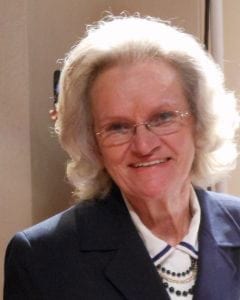I’ve dealt with the medical community in a number of ways throughout my life, from my first clerical job in a hospital, to numerous positions in hospitals in different states. I’ve also been a patient as well as a patient advocate for family members.
And from the time our daughter Kelley’s symptoms first appeared when she was 3 years old, and the journey of discovery began, our family had extensive interaction with members of the medical community in multiple hospitals. Most of those we’ve dealt with have been more than helpful. It was obvious that they wanted to help us to identify and handle our oldest daughter’s rare disease.
After testing and many consults, her case was presented at a medical conference when she was ten. The many doctors in attendance had numerous questions for me after the clinical aspects of her condition were presented by her geneticist. I felt a profound gratitude that so many people were in one room focusing on my little girl, like we were all part of a team. The outcome of that conference was that one doctor put us on the right path to finally having a definite diagnosis. While it was good to have name for the condition, we learned that there was no cure.
However, many members of the medical community did try to alleviate all of the symptoms Kelley experienced during her 45 years of life. She had too many treatments and operations to count.
Naturally, I always wanted them to be totally focused on us, to “walk a mile in our shoes.” Therefore, in full disclosure, I must admit that I have been known to yell at some of them when I thought they weren’t treating my daughter properly. Yet, I also recognize that they all have limits to their knowledge and abilities. No one ever gets everything right 100% of the time; there were some things that I was able to accept and overlook, considering how many working parts there are to a human body and how those parts interact in conjunction with each other.
Doctors don’t live in the hospital, although to some it might feel that way to them at times. They all have personal lives, with the normal life stresses as well as the stress of caring for patients. Sometimes they are rushed, or they might be upset because of something that just happened with another patient or co-worker. Once in a while it might be a good idea to think about “walking a mile in their shoes,” and cutting them some slack.
Could that doctor have just lost a patient because the treatments failed to keep them alive? Did that therapist just learn that his own wife had received a devastating diagnosis? Has that nurse just returned from a trip home to attend her father’s funeral?
In addition to their private lives, they deal with other staff members, insurance company requirements, federal regulations, and legal ramifications to every decision they make. All doctors, nurses and therapists have to document every single interaction with every patient. They must constantly stay updated with the latest advances and changes in their respective specialties. Many of them become frustrated that they aren’t able to do more. While negligence or abuse is never acceptable, if we can take all of these things into consideration when advocating for ourselves or our loved ones, perhaps we won’t always expect perfection from human beings.
We might even remember to give praise when such is warranted. Everyone likes to know that they are appreciated when their caring shines through.







